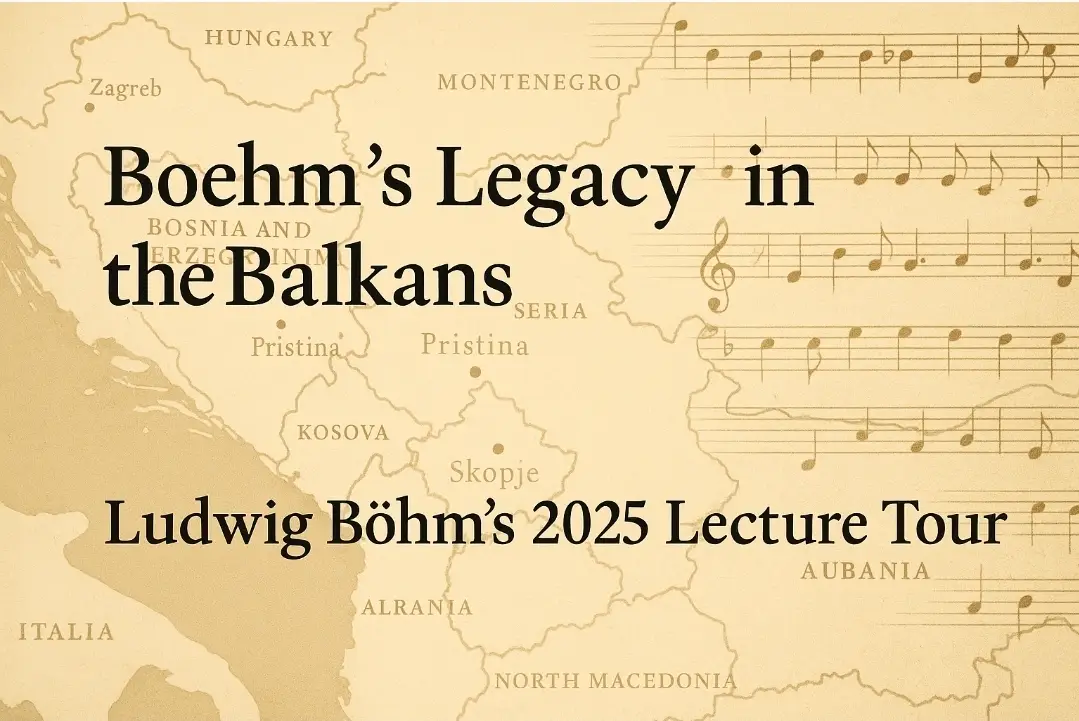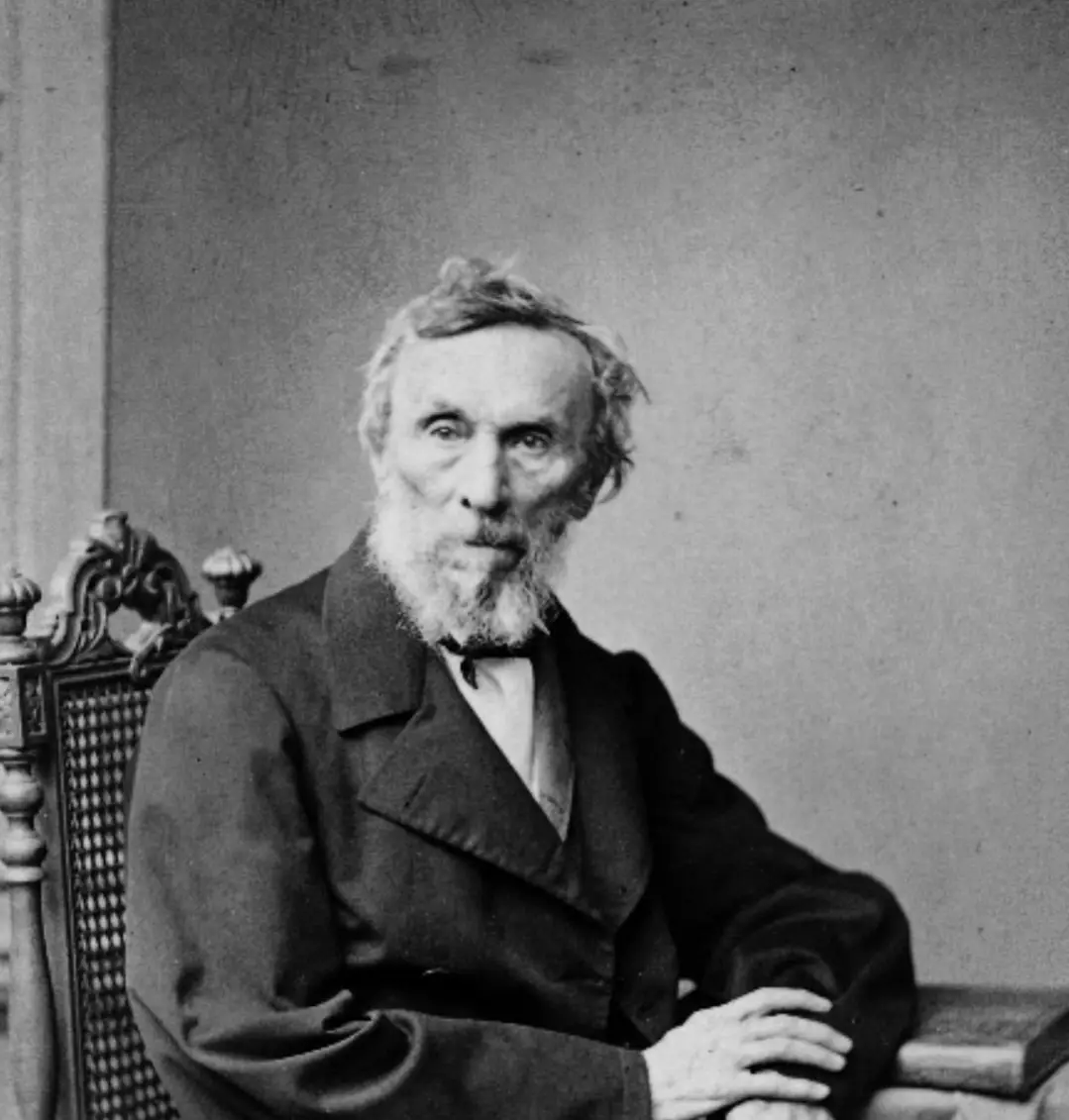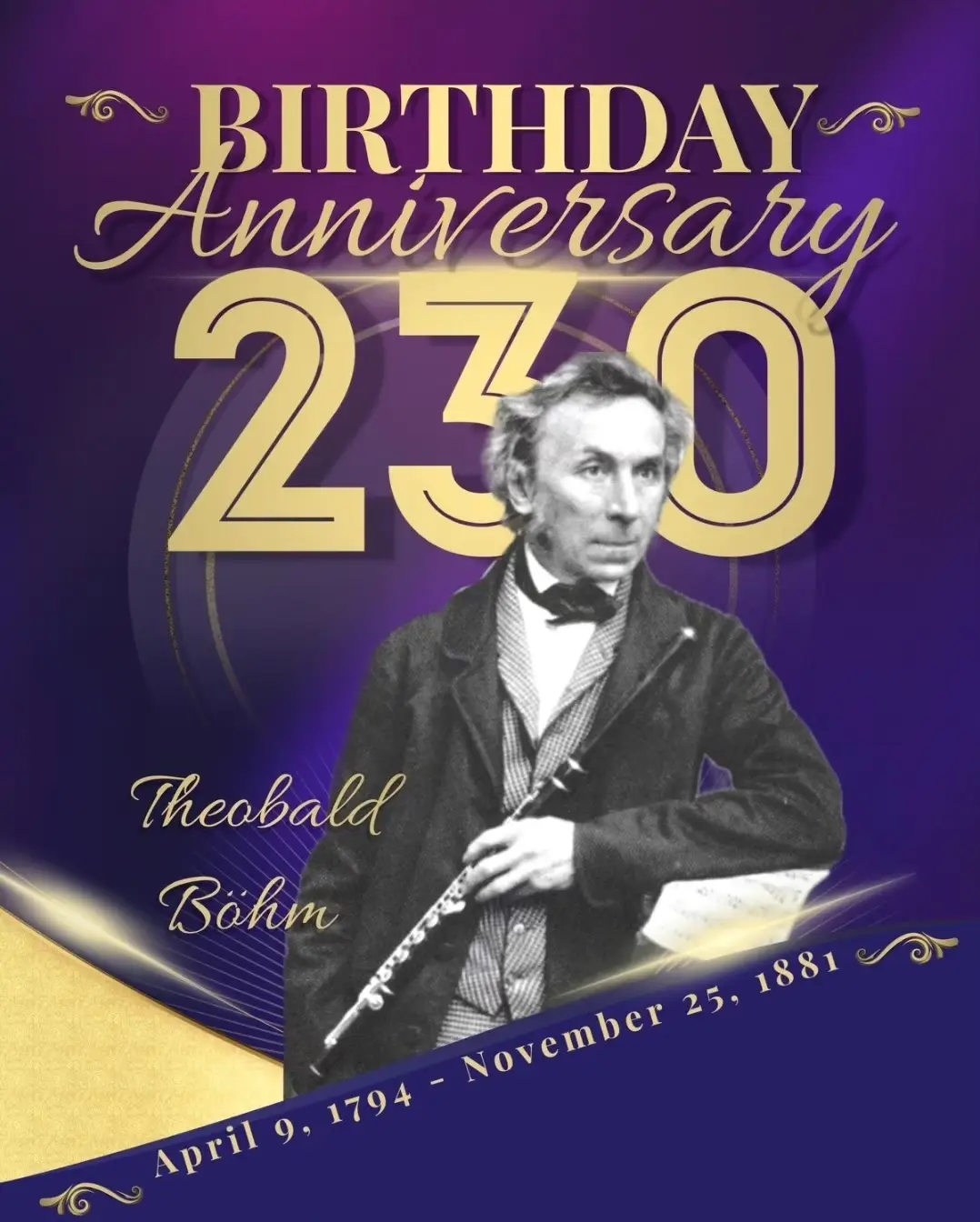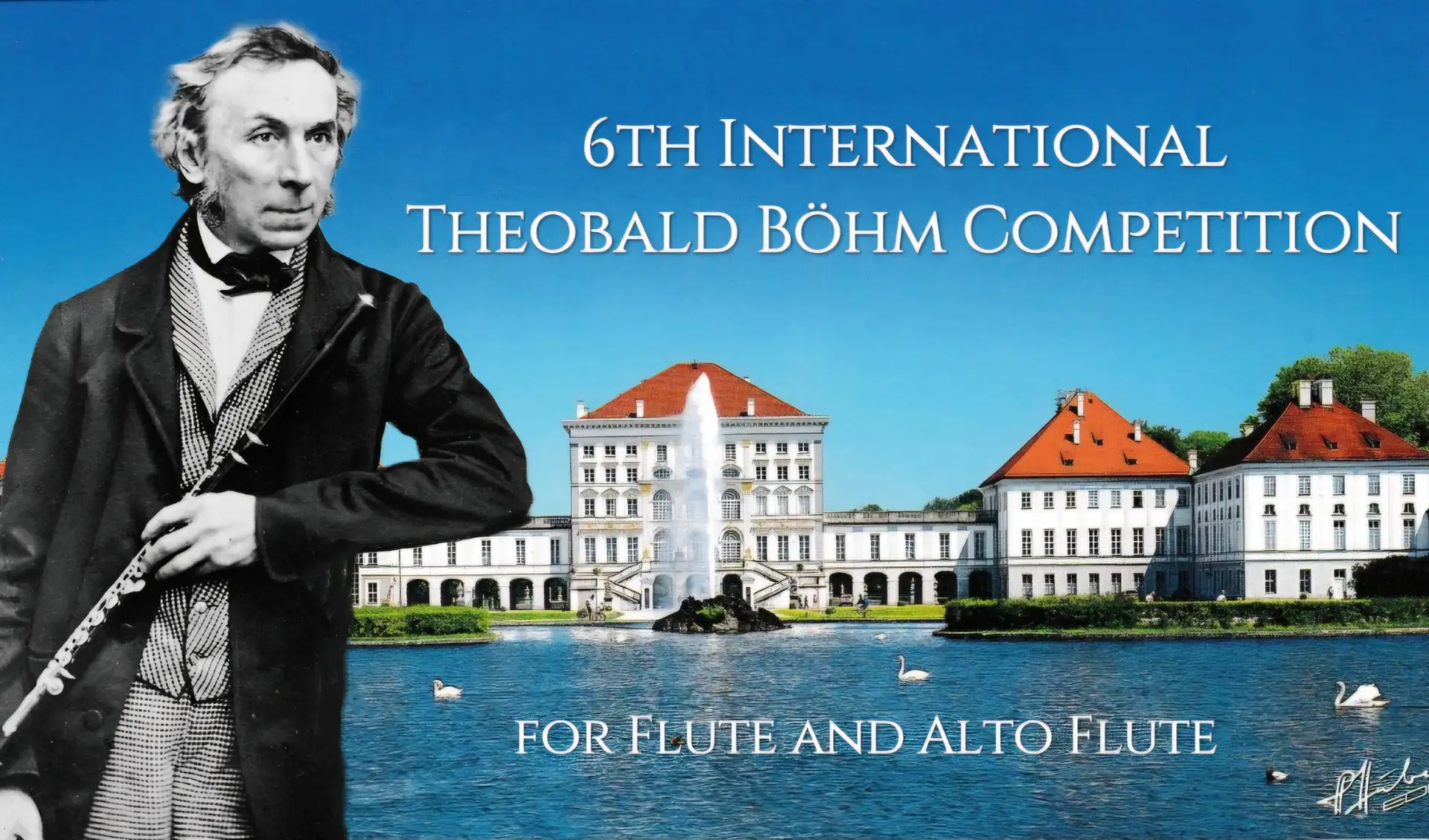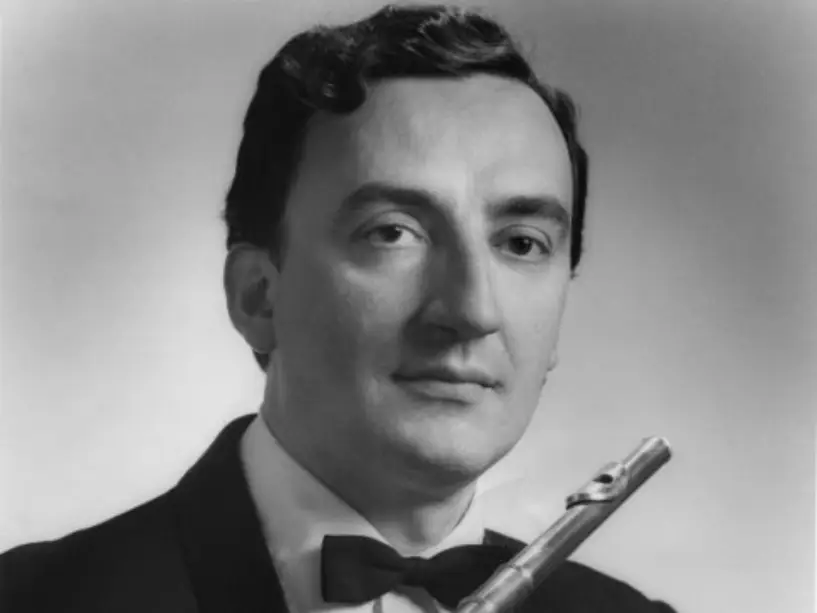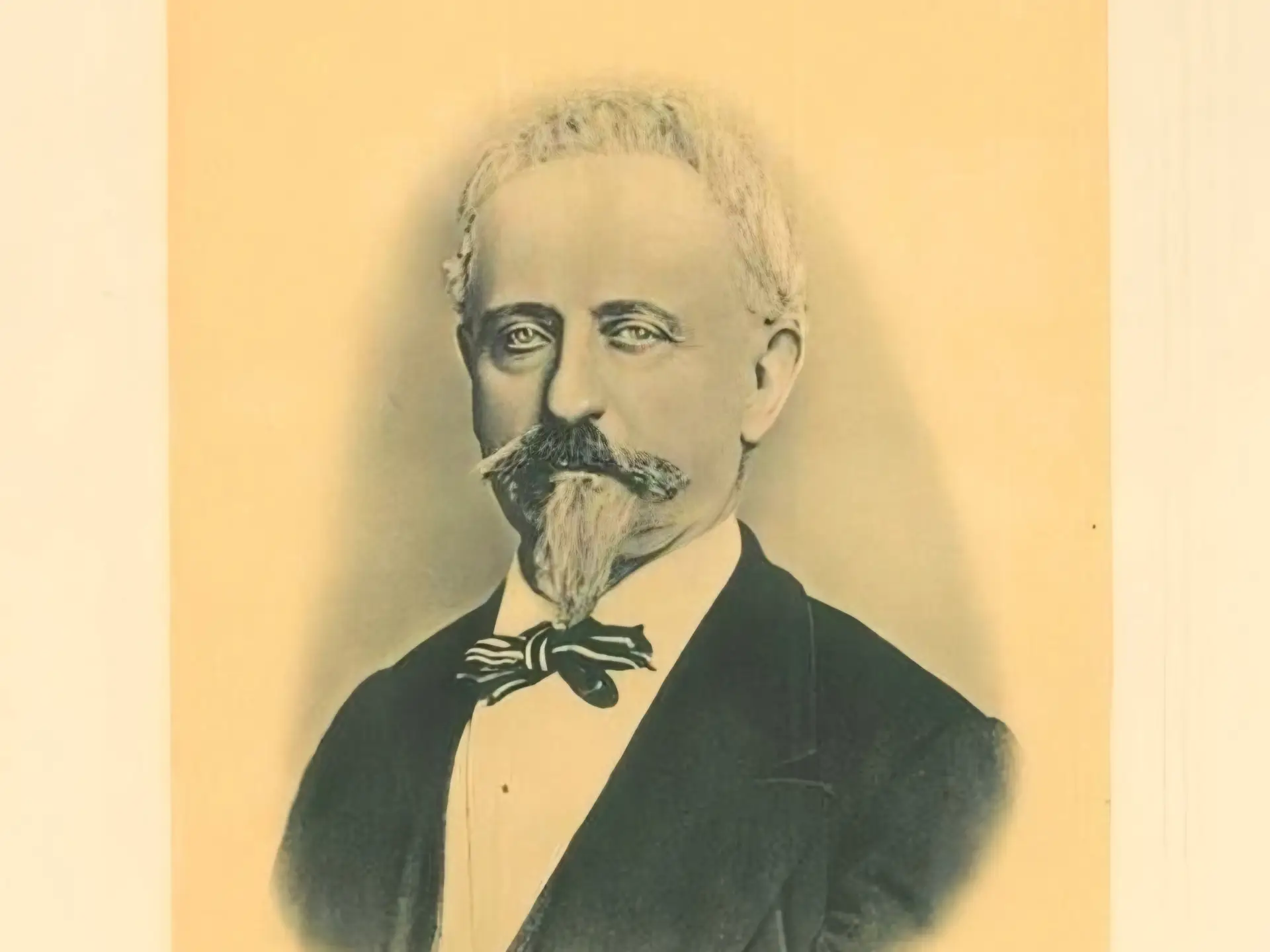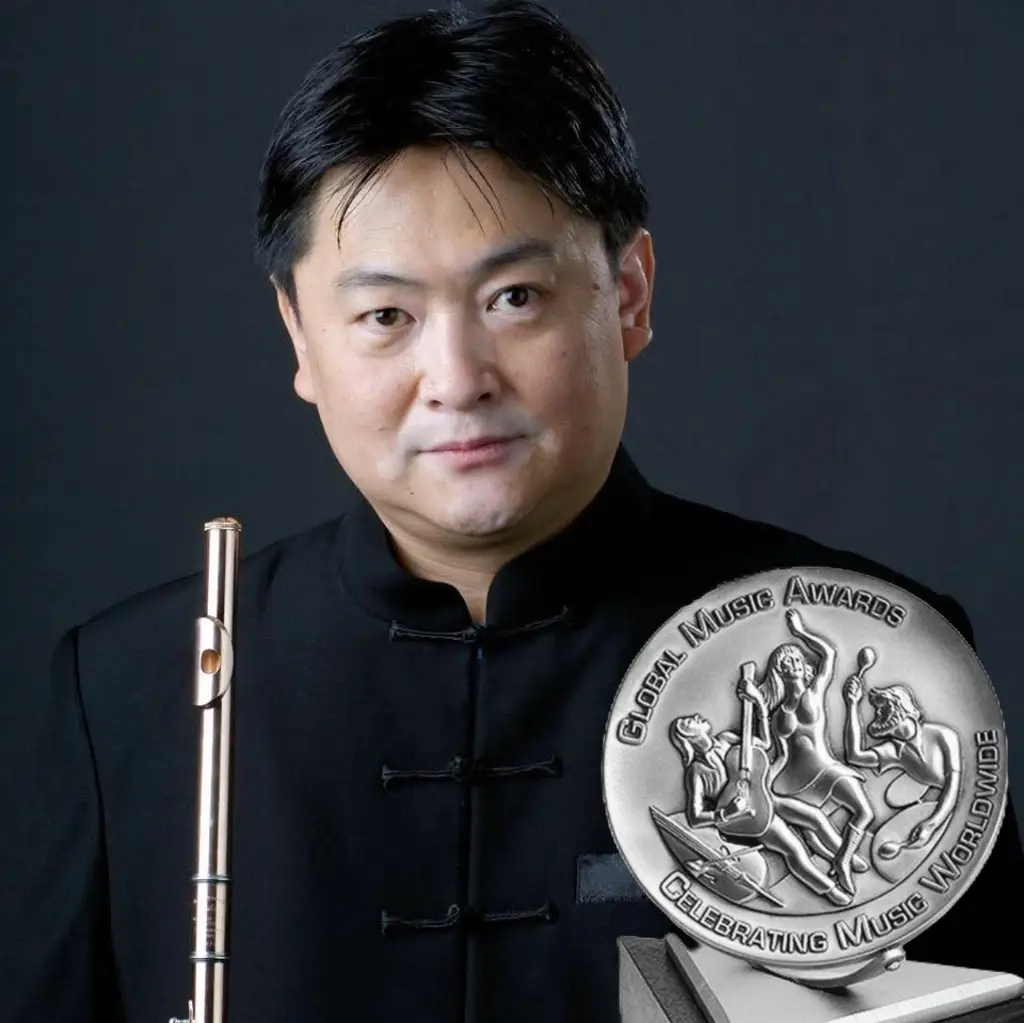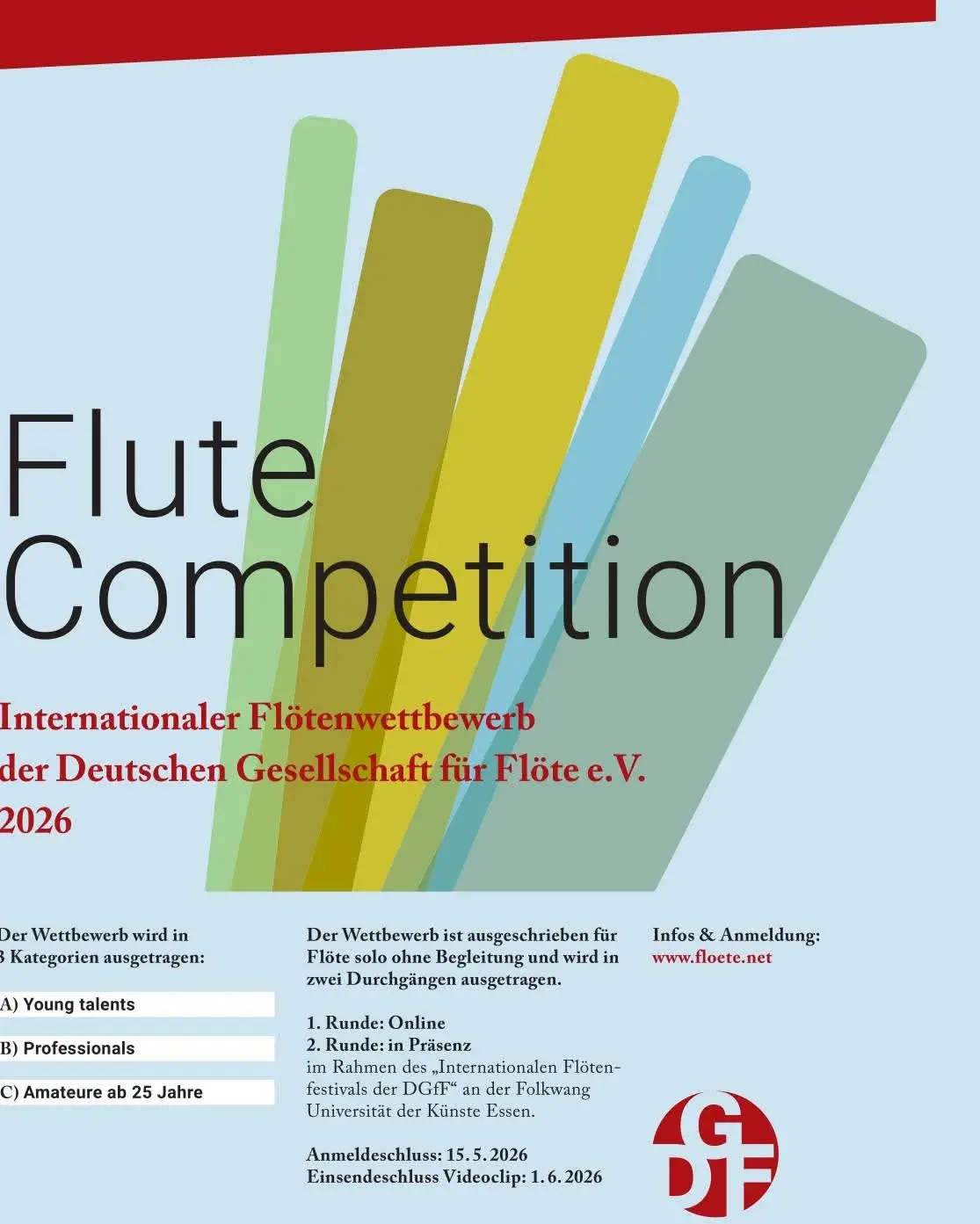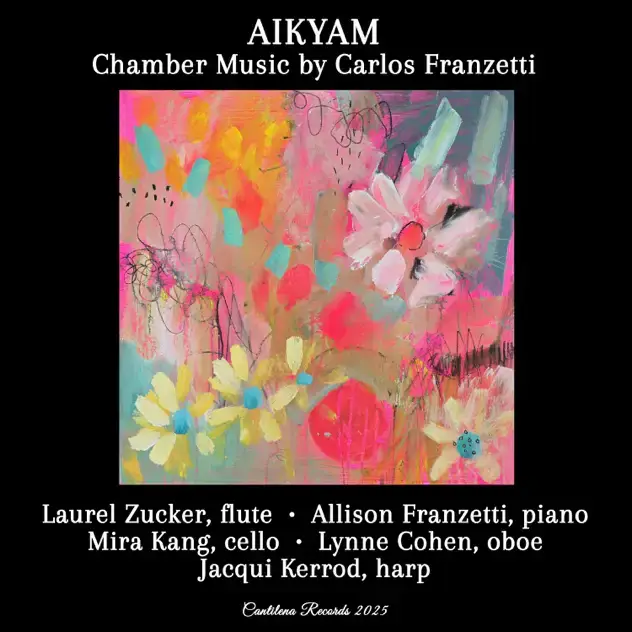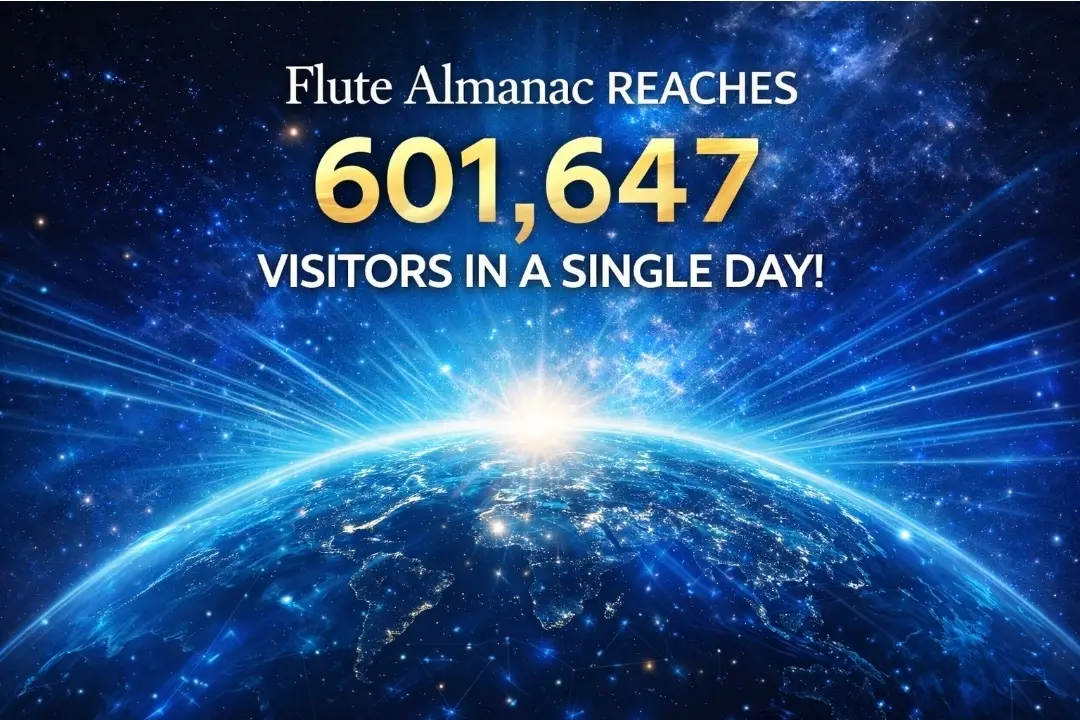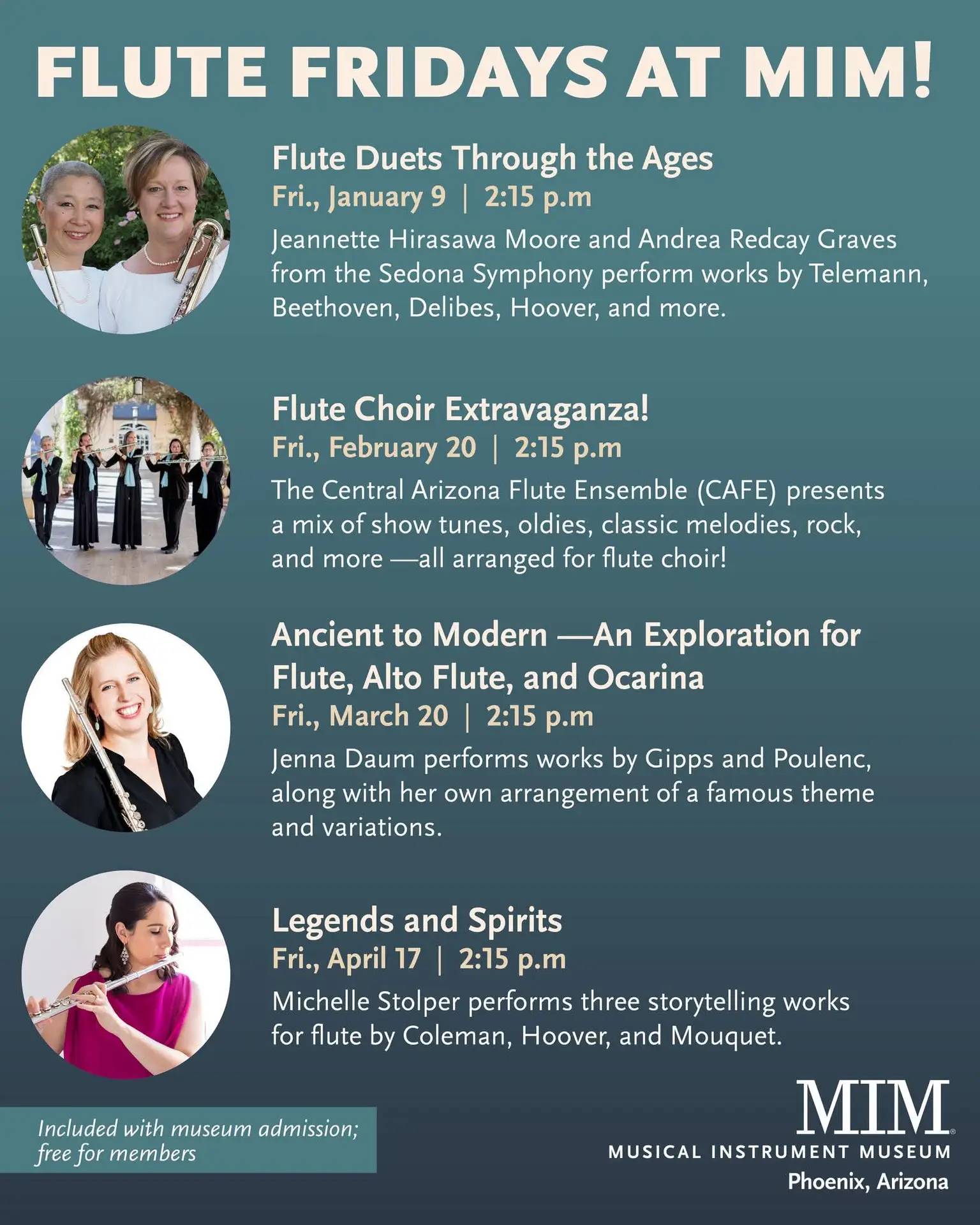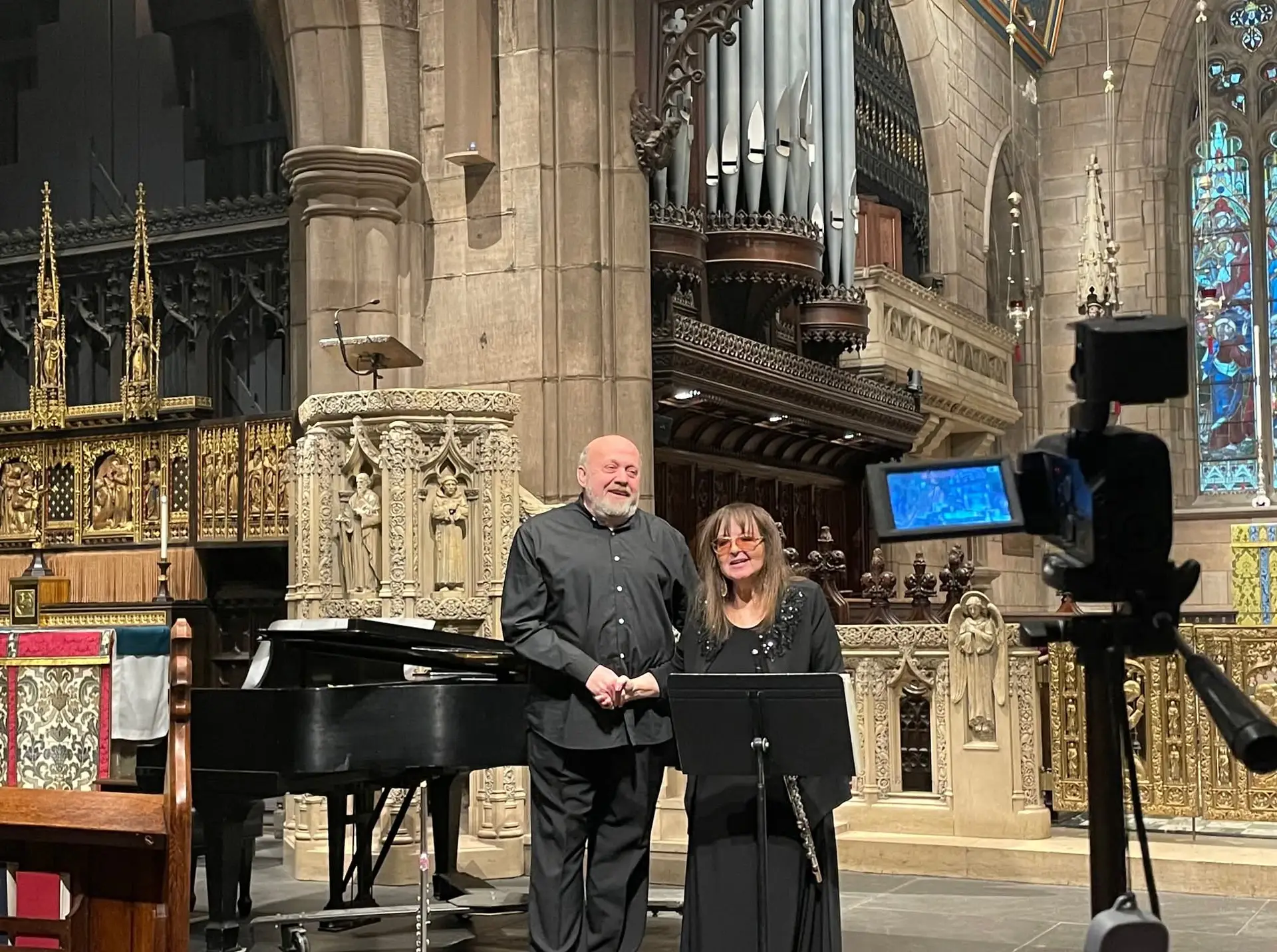It is with great pleasure that I report on the conclusion of the 2025 Theobald Böhm Flute and Alto Competition, which has once again brought together some of the finest flutists from around the world.
In 2022, there was the problem of the coronavirus pandemic, and in 2025, there was the problem of the place, where the events take place. Since the University of Music had informed me that they needed the rooms for their own events due to the loss of the rooms at the Gasteig, I had to look for a new place.
The former factory site at Ostbahnhof, now called Werksviertel, which belongs to a descendant of Theobald Böhm, does not have a concert hall for 100 people, nor does it have a small rehearsal room next door. The Augsburg University of Music was also out of the question for me, as it lacks any connection to Theobald Böhm.
Since I love the amazing Castle Nymphenburg and its magnificent Castle gardens, I finally decided on the beautiful Johannissaal (St. John’s Hall) in the Castle, where all other events also took place.
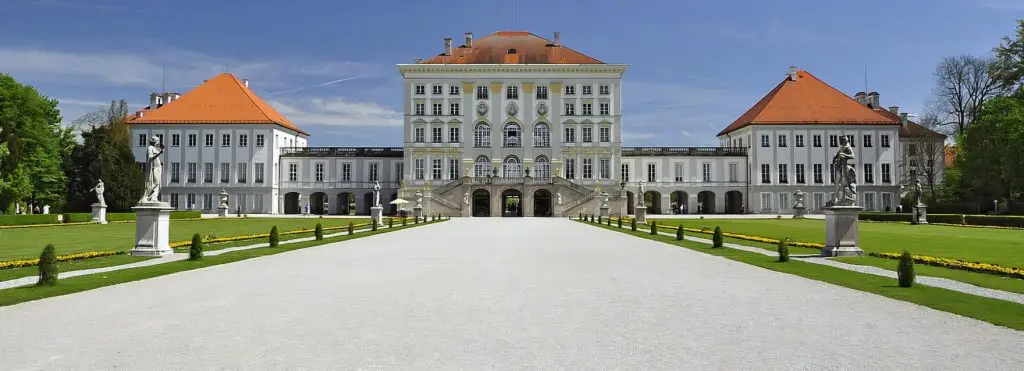
With 99 seats, it has just the right size; the Hubertussaal, 100 meters away, with 369 seats, is much too large. The only disadvantage is that the rehearsal room next to the Johannissaal is a bit too small and therefore a bit too loud.
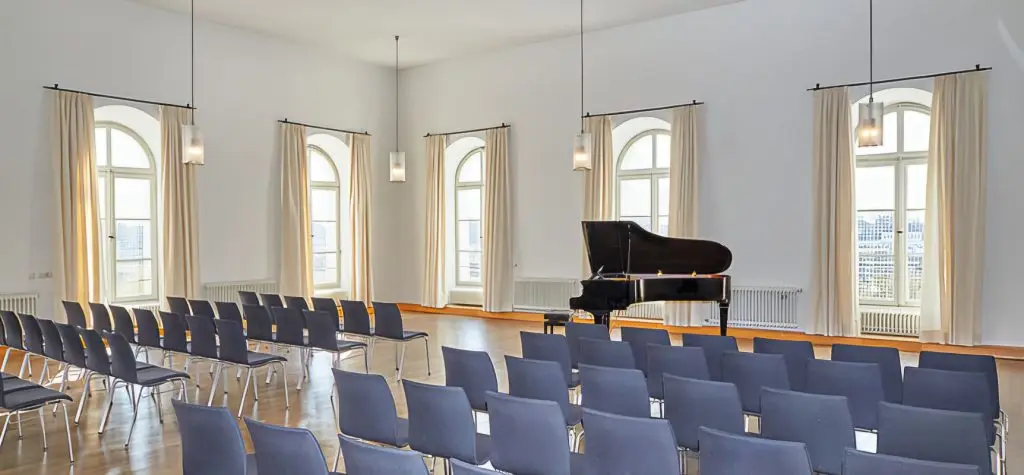
The original plan was that the participants of the competition attend the rehearsal of the jurors for the festive concert the following day at 14.00 on Saturday 8 March 2025. However, I then asked the jurors if they wanted to rehearse at noon on Saturday and then perform in the concert, and everyone agreed.
The pieces in the concert are pieces, which I discovered in libraries in Europe and the USA. They were dedicated to Theobald Böhm by contemporaries and have probably not been performed since the 19th century.
An Opening Befitting the Occasion

From 17.00 to 17:45, my slide lecture about Theobald Böhm followed, featuring 144 slides. It began with 14 pictures of Theobald Böhm, followed by pictures of his three professions as flute virtuoso, composer, and flute maker.
The festive concert of the jurors on Sunday 9 March 2025, featuring the same program as the previous day, was sold out with approximately 60 descendants of Theobald Böhm including spouses and flute friends. Works by Giulio Briccialdi, Anton Bernhard Fürstenau, Johann Valentin Hamm, Karl Keller, Emanuele Krakamp, Anton Ortner, Wilhelm Popp and Giuseppe Rabboni were performed, as well as two arrangements by Theobald Böhm for flute in C and alto flute in G of works by Gioacchino Rossini and Carl Maria von Weber, which were performed by all flautists together.
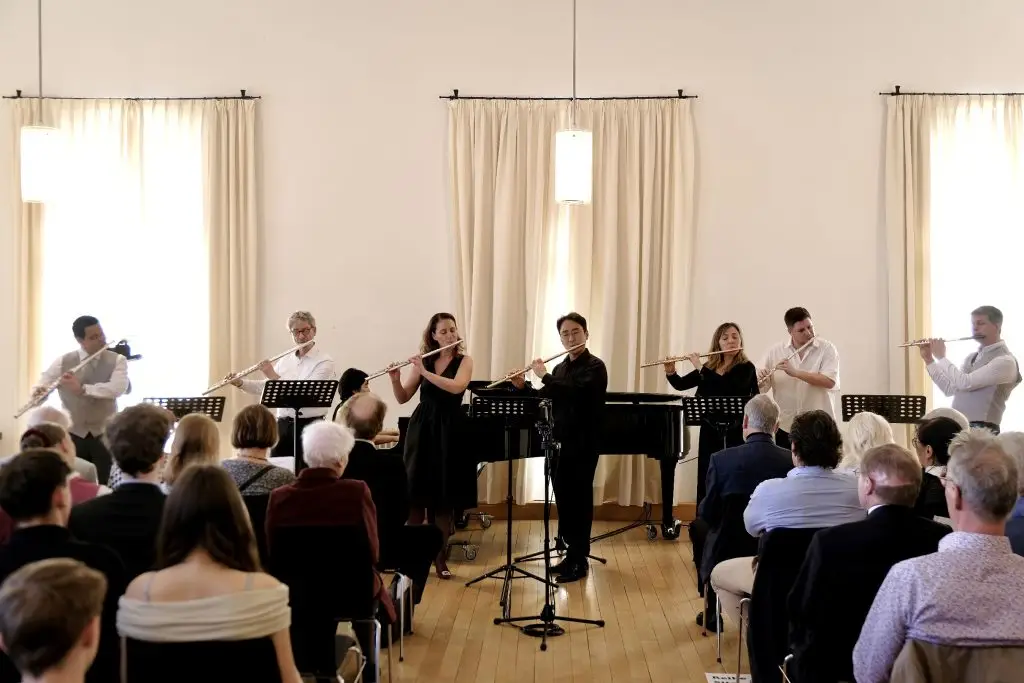
Afterwards, the musicians and descendants enjoyed a shared lunch in the nearby Königlicher Hirschgarten (Royal Deer Garden) under bright sunshine and warm temperatures.
After lunch, from 16:45 to 17.00, there was a short memorial service at Theobald Böhm’s gravestone in the Old Southern Cemetery, Thalkirchnerstraße 17, Section 12 (a 10-minute walk from the Sendlinger Tor subway station). Aldo Baerten played Souvenir des Alpes, No. 5 Andante pastorale, Opus 31, by Theobald Böhm. The cemetery was established in 1563 as a plague cemetery and is one of the ten most important cemeteries in Europe.
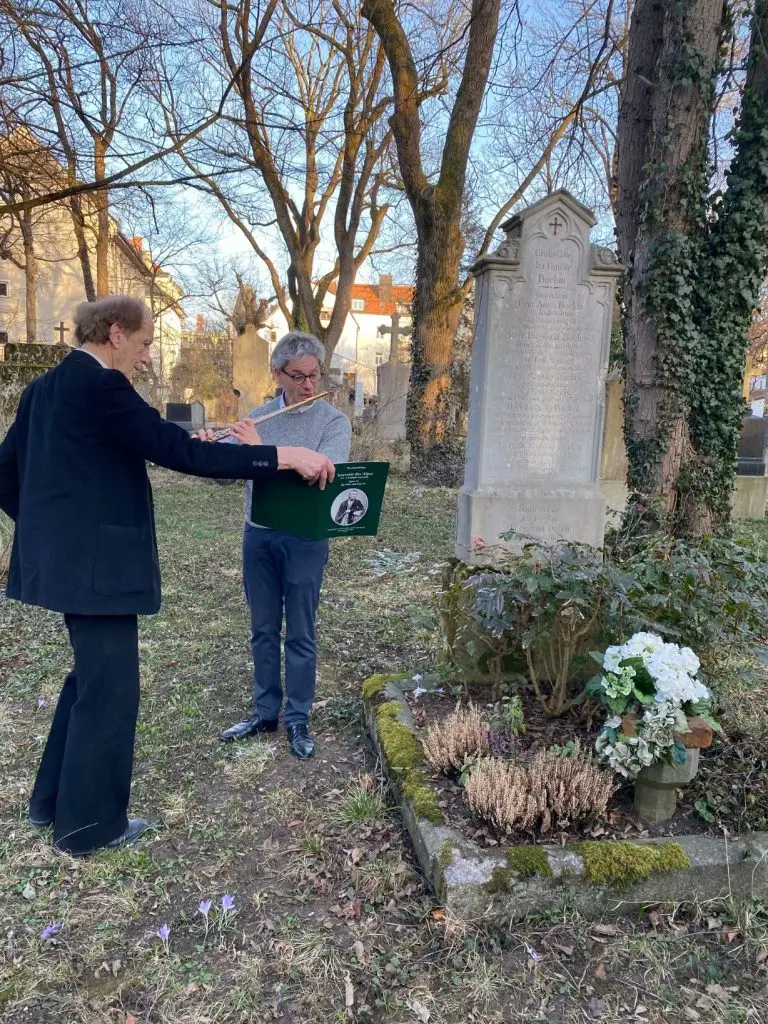
The Competition
75 people from 20 countries registered for the competition: Germany (14); Austria (2), Croatia (1), Czech Republic (2), France (2), Hungary (5), Italy (5), Latvia (1), Luxembourg (1), Poland (3), Russia (3), Slovenia (2), Spain (3), Switzerland (1), Turkey (1), Brazil (1), China (9), Japan (5), South Korea (12), Taiwan (2); female (52), male (23); from Europe (47), from Asia (27), from America (1). 11 people play the alto flute in G in two rounds, 9 people are under 20 years old.
While the first four competitions had only male winners, the last competition and this one were dominated by female participants.
The competition ran from Monday morning to Friday noon. The 68 participants from 20 countries were just right for the time table in the first round, which ran from Monday to Wednesday. Four participants rehearsed from 9.00 to 10.00 and then performed in front of the jury, while the next four rehearsed again. The second round, with 18 participants for the C flute and four participants for the alto flute in G, took place on Thursday, and the third round, with seven participants, took place on Friday morning.
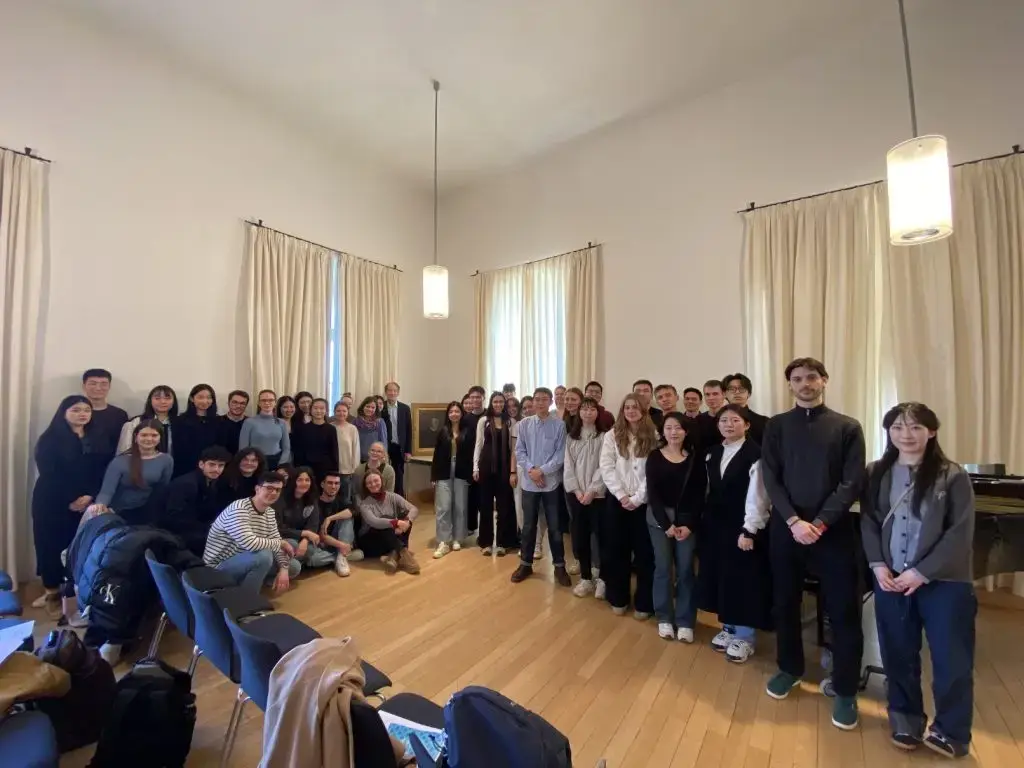
Presiding over the proceedings was a panel of distinguished jurors, each an eminent figure in their own right:
- Sung-hyun Cho (South Korea)
- Matvey Demin (Russia)
- Iva Lubomirova (Bulgaria)
- Martin Belič (Slovenia)
- Aldo Baerten (Belgium)
- Nihan Atalay (Turkey)
- Anton Kushnir (Ukraine)
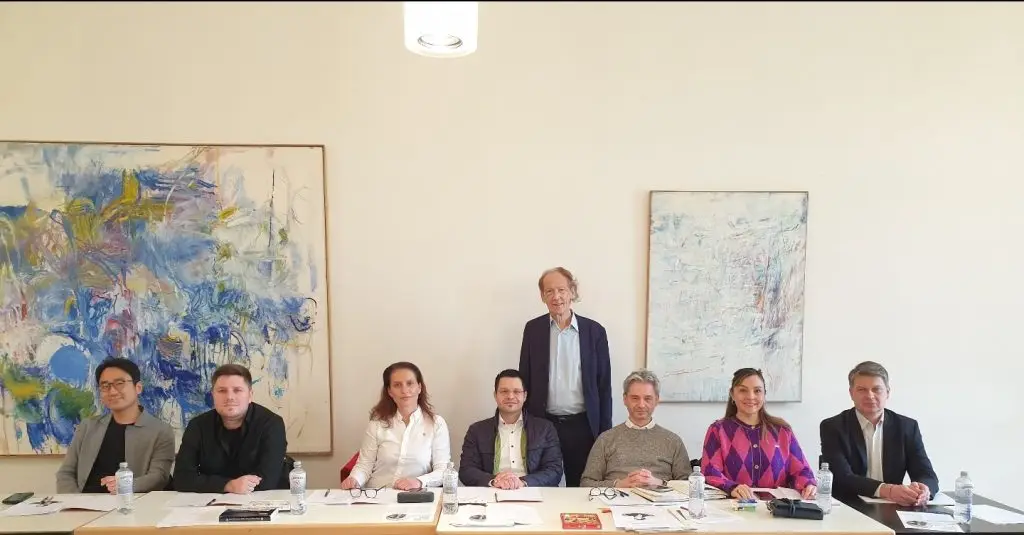
The Laureates of the 2025 Theobald Böhm Flute and Alto Competition
After calculation of the average number of points for more than one hour, the jury awarded the following distinctions:
First Prize (€5000, generously provided by the Stiftung Otto Eckart):
Miss Haeun Kim (South Korea)
Second Prize (€3000, graciously donated by Christine Böhm):
Miss Anamarijah Lajh (Slovenia)
Third Prize (€2000, kindly offered by Eva Mändl):
Miss Ana Tutić (Croatia)
Two additional distinctions were conferred:
Special Prize for Alto Flute in G (silver headjoint, 2560 EUR, Ludwig Böhm):
Miss Anamarijah Lajh (Slovenia)
Special Prize for the best participant under 20 years of age (wooden piccolo headjoint, 1170 EUR, Mancke Company):
Miss Chaeun Kim (South Korea)
Refining the Jury Process: Scoring Systems and Fairness in Competition Evaluation
For most of the questions, I was able to draw on my experience from the first five competitions. As in the previous ones, the question arose as to whether advancement should be decided based on points or on a yes or no vote. The major advantage of points is that there can be no discussions or arguments among the judges, which often occur in other competitions. The second advantage is that I can tell the participants the average score after the competition, so they can see where they landed. I believe these advantages far outweigh the disadvantage that calculating the points takes over an hour, which can be saved with a yes or no vote.
The second question in the evaluation is whether or not to delete the best and worst scores for each participant. An argument in favor of deletion is that there might be a black sheep among the jurors, who doesn’t award points according to his best knowledge and belief, but rather based on personal feelings, for example, if the Ukrainian juror unfairly awards too few points to the Russian participants, or if a juror unfairly awards too many points to the students of a colleague, who is his friend.
In previous competitions, the jurors advised me to delete the highest and lowest points, but in the competition of this year, the majority of the jurors voted against deletion. The disadvantage of deleting entries is that the judges are reluctant to give too many or too few points for fear that their rating will be deleted. If all judges calculate the average score together, the risk of an unfair assessment is relatively low. Therefore, I now believe it’s better to leave the highest and lowest ratings and not delete them.
The People Who Made the Competition Possible
Finally, I would like to thank everyone who contributed to the smooth running of the competition.
First of all, the jury. The president of the jury, Martin Belič comes from Slovenia, plays with the Munich Philharmonic and teaches in Augsburg. Martin Belić won the 1st prize in 2011, was in the jury in 2016 and 2019 and was president in 2022. He has been my greatest support in the competition.
Nihan Atalay traveled from Istanbul. She is replacing Ruth Wentorf, who fell down the basement stairs a week before the competition and broke her foot. So I had to find a replacement very quickly, and I’m very grateful to Nihan for stepping in at such short notice.
Aldo Baerten travelled from Belgium, Sung-hyun Cho studied in Munich and made the long journey from South Korea, Matvey Demin comes from Siberia and teaches in Freiburg, Anton Kushnir travelled for two days from Kiev in Ukraine, and Iva Lubomirova comes from Sofia in Bulgaria.
I would like to thank the two pianists Nino Gurevich from Georgia and Madoka Ueno from Japan, as well as my assistant Valeria Derkach from Ukraine, all three live in Munich.
I would also like to thank the Castle administration for renting the concert hall and the Munich City Youth Hostel for renting four practice rooms. Since there are no practice rooms in the castle, I had searched in vain for over a year to find practice rooms for the participants. A week before the competition, I asked all participants, whether they are allowed to practice in their accommodation, and 27 responded with no that they absolutely had to practice two hours a day. Therefore, it was a great relief for me when I learned from the youth hostel the next day that they had two event rooms that could be divided into four by a wall.
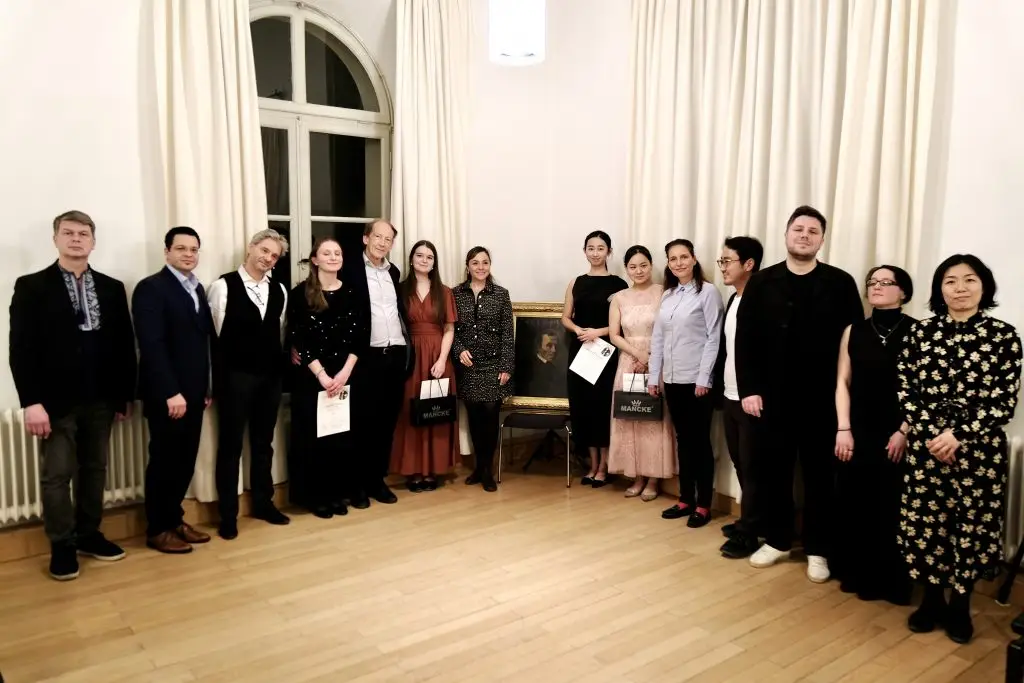
Dear Ludwig, thank you! Bravo for a wonderful week with superb music …. superbly organized …. interesting …. Best regards, your Aldo
[Antwerp, March 15, 2025]
Ludwig Böhm
ludwig.boehm@t-online.de | www.theobald-boehm-archiv-und-wettbewerb.de
Address: Asamstrasse 6, 82166 Gräfelfing, Germany, tel. 0049-89-875367
Ludwig Böhm was born in Munich, where he studied English, French and Spanish at the University and was a teacher from 1981 to 1983. Inspired by a great exhibition in the Munich Municipal Museum in 1981 on the occasion of the 100th anniversary of the death of his great-great-grandfather Theobald Böhm (flautist, composer, flute-maker, inventor of the Böhm flute, Munich 1794–1881), he dedicated his life from that time on to keeping the memory of Theobald alive. As a result of more than 30 years of research, he published in 2012 all 88 compositions and arrangements of Theobald together with Dr. Raymond Meylan and in 2013 20 books and 4 translations from and about him.
He travelled to flute festivals in Japan, Australia, USA, Netherlands, Spain, Germany, Italy, Croatia, Luxembourg, Slovenia, China, Great Britain, Iceland, Thailand, Portugal, Chile, Poland and Armenia and presented a slide lecture about Theobald. He is the President of the Theobald Böhm Archive, founded in 1980, of the Theobald Böhm Society, founded in 1990 and of the Theobald Böhm Foundation, founded in 2014. In 2006, 2011, 2016, 2019, 2022 and 2025 he organized in Munich the 1st, 2nd, 3rd, 4th, 5th and 6th International Theobald Böhm Competition for Flute and Alto Flute.
List of professional open G# players
Current list of 494 professional open G sharp players can be seen in the homepage www.theobald-boehm-archiv-und-wettbewerb.de under “Open G sharp Key”. If you are a professional open G sharp player, who have not yet contacted Ludwig Böhm, please do so at ludwig.boehm@t-online.de to be added to the list.


